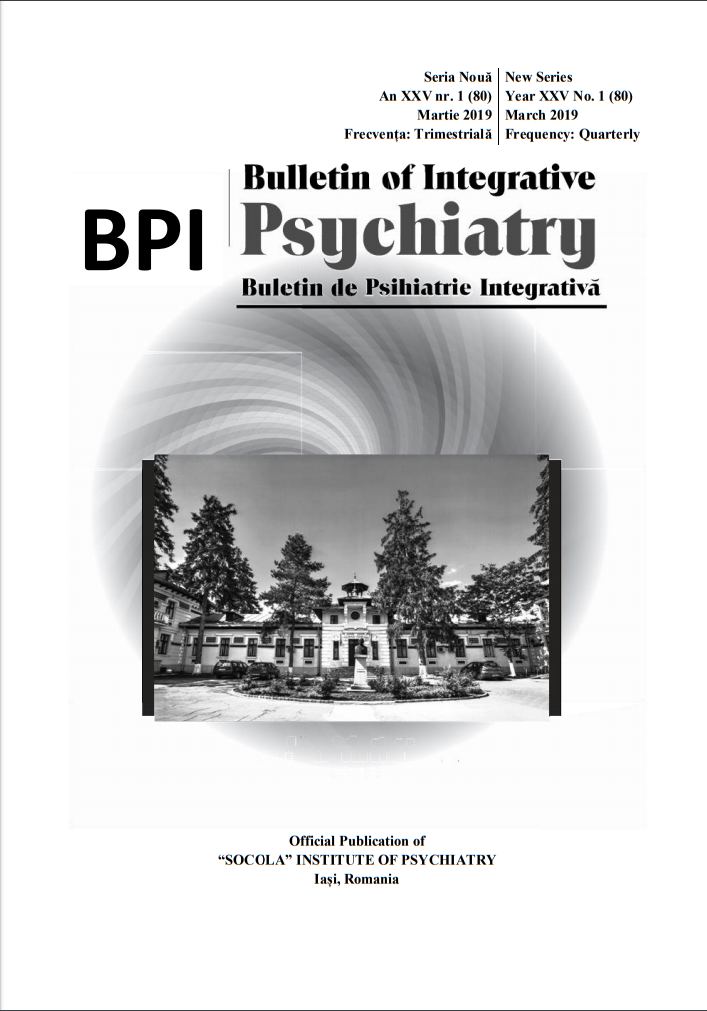Quality of life in major depression – sexual dysfunctions in patients treated with
antidepressants
Quality of life in major depression – sexual dysfunctions in patients treated with
antidepressants
Author(s): Radu Gavril, Raluca Mihaela Gavril, Livia Andreea LUPȘA, Lavinia Bejenariu, Irina Dobrin, Cristinel ȘtefănescuSubject(s): Health and medicine and law
Published by: Editura Sedcom Libris Iasi
Keywords: Depression; serotonin; sexual dysfunction; adverse effects;
Summary/Abstract: The human mind can express itself through a chain of molecular processes, but it is not just a matter of molecules. The uniqueness of the individual is not contained in a short formula, and the general rules of contemporary psychiatry and psychology must be taken only as ancillary means to emphasize a provisional visual field in which the individual may or may not feel captured. Depressive disorders often coordinate three major daily issues: social, work and love life. An important aspect of choosing an antidepressant is its safety and tolerability. Before selective serotonin reuptake inhibitors (SSRIs), tricyclic antidepressants (TCAs) were the central pillar of pharmacological treatment for depression. SSRIs have largely replaced TCAs since the 1990s with the hope that the latter will be more effective and have a higher safety profile than the former. Among the side effects of antidepressant medication, the most common are bleeding, cardiovascular diseases, dry mouth, gastrointestinal effects, sexual dysfunction, suicidal risk, liver toxicity, seizures, weight gain, hyponatremia, sleep disturbances. The first reports of the long-term side effects on sexual function of SSRIs date 2006. The mechanisms underlying sexual dysfunction are mostly unknown. A commonly recognized hypothesis asserts that SSRIs and venlafaxine reduce dopaminergic transmission via serotonin receptors in the mesolimbic area, primarily associated with orgasm and sexual desire, hence the link between sexual dysfunction and these drugs.
Journal: Buletin de Psihiatrie Integrativa
- Issue Year: 80/2019
- Issue No: 1
- Page Range: 27-34
- Page Count: 8
- Language: English

